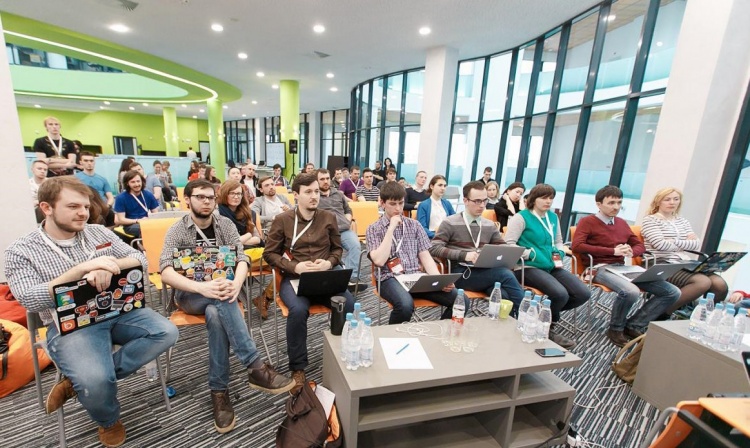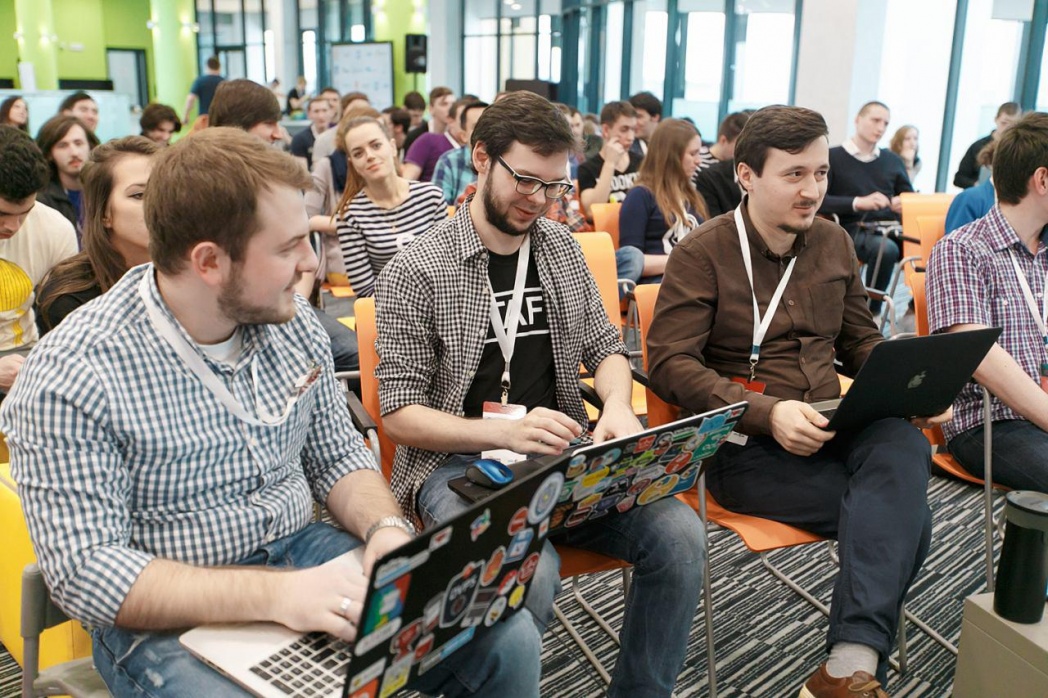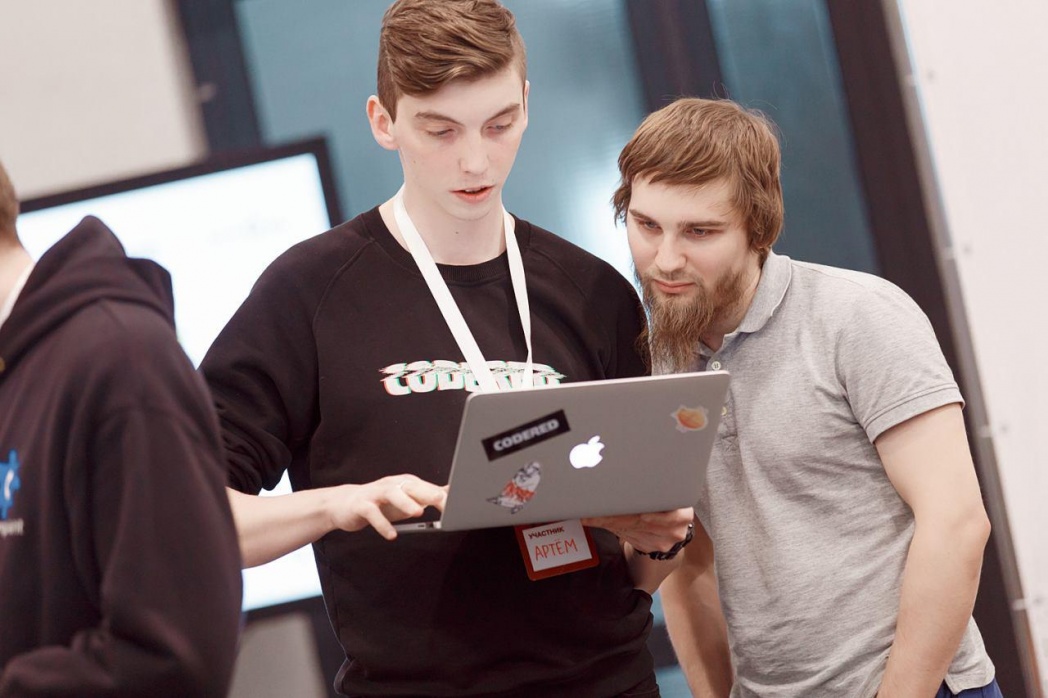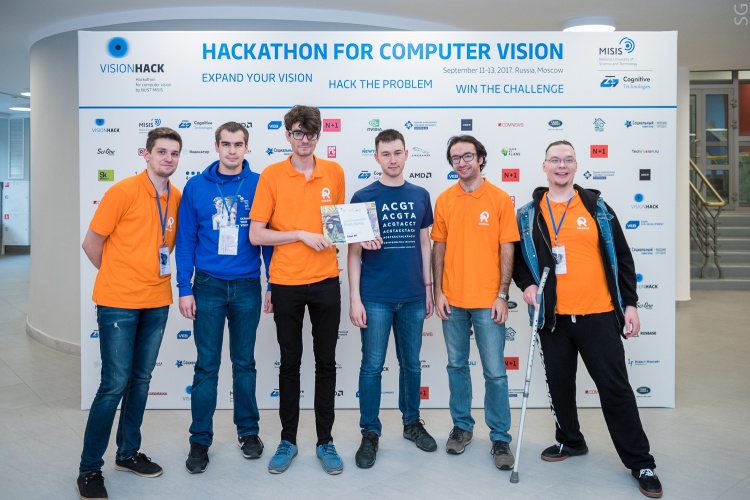The IT University is launching the first Russian accelerator of blockchain projects helping to eliminate paperwork and avoid bank frauds.

Financial transactions are a part of daily routine. Every day people sale and purchase goods, make contracts and deals, send letters and parcels. As a rule, these operations are carried out through third parties and require certificates and other supporting documents issued by various institutions which takes much time and efforts. Meanwhile, papers can be lost or get void. We confide information about our transactions to third parties whose security systems are in question. Thus, by depositing money to a bank account or making card-to-card transfers we skate on a thin ice because important information or funds can be captured by fraudsters.
Blockchain is a data storage technology that enables transactions avoiding any intermediaries i.e. there are only two parties involved: a sender and a recipient. Information about all banking operations is stored in the system. Viewable by anyone, transaction details cannot be edited or deleted which makes them fraud-secure. Activities carried out in the blockchain system are completely anonymous and do not require person identification. In other words, a stranger has no chance to capture information about transactions or account balance of an individual. With this system, there is no need to wait for a credit to be approved or a cheque to be certified by a bank. It will save clients from paying remittance fees and buying or double selling of apartments, etc.
Similar projects launched in Russia have attracted attention of many institutions, and banks in particular. According to Santander InnoVentures Fund, there are 20-25 cases of the blockchain technology being used in the financial sector worldwide. The new technology will bring banks to a new security level and reduce the number of transaction officers. A research study made by the European Central Bank has revealed that Estonia, where the blockchain technology is used to guarantee security of banking infrastructure, has the lowest level of credit card frauds across all Eurozone.
According to Simon Taylor, founder and President of Barclays (UK), a fintech accelerator, functional quality of modern banks is in question. There are issues concerning speed, cost and efficiency of banking operations, so each of these problems is addressed by a growing number of projects: "Estimated costs that banks can optimize range from 15 to 20 billion US dollars a year. So, the main task of consortiums like R3, DAH, and Qiwi, - there are 60 financial institutions of that kind in general, is to develop industry-specific standards".
The expert noticed that the blockchain technology will improve speed, transparency and efficiency of payment operations: "Today we run it as an experiment but tomorrow it can turn into a key development area of payment systems, and not only in banking - it will refer to all types of p2p money exchange". Besides payments, banks are interested in smart contracts systems based on a blockchain protocol. At the moment, it is the largest transformation area because legislation and some of its forms are being digitized. So far, legal institutions have been using a great number of documents. Digitalization of this process can change a lot: "This is the case of Stampery, a startup launched in California, USA, allowing users to notarize digital transactions in a system based on the blockchain protocol. Once the transaction is registered, the system generates a proof that the given dataset was indeed stamped," - added Simon Taylor.
Despite the apparent benefits of the blockchain technology, Russia does not have enough resources to develop the fintech industry. The country needs a modified legislation system and more energy resources for such technologies. Meanwhile, organizations coordinating such transactions require clear guidelines for use and management of these technologies. In addition, startups need platforms for their development, inflow of investments and networking with world experts.

Innopolis University will launch the first Russian program for examination and development of projects based on blockchain technology. This autumn Life.SREDA venture fund, partner of the University, will make an introductory workshop and organize a hackathon. The venture fund will also start InspiRussia, a fintech accelerator that integrates world experts in financial technologies helping to implement, support and launch Russian blockchain projects and scale up the product abroad.
Today, development of the fintech industry is among the top issues. People are looking for a "one-click" solution rather than time-consuming procedures at the official authorities. People are tired of hours-long waiting in queue lines and complicated bank procedures, low speed operations and the "stone age" of finance industry in general.
According to the CB Insights and Accenture, investments in fintech double every year. Thus, a $40 billion growth is expected in 2016. For a short period of time fintech has increased by 36 "unicorns" i.e. companies with capitalization rate over $1 billion. Another 36 will soon join the industry. Banks are afraid of being out-of-date and useless in the near future and are ready to take action now.
"Blochchain will become a turning point for all industries from agriculture to banking. Clearly, this is the case for public authorities as well. The multi-billion worth IT-system of Sberbank is outdated, and Russia cannot miss the new revolutionary technology,"- Herman Gref, Sberbank CEO, said to Gazeta.ru.
Workshop (September 2):
The following experts will take part in the workshop on fintech issues: Chris Skinner, one of the most influential experts on the fintech market; Vyacheslav Semenchuk, a fintech entrepreneur (PayQR, LifePay, My-Apps.com); Igor Khmel, a fintech entrepreneur (BankEx); Elena Rechkalova, a Top Manager experienced in large-scale banking business (Retail, SME and corporate blocks) representing the leading Russian banks, a top expert and business consultant in the banking industry, expert in fintech projects and hackathons of the Skolkovo Fund, Higher School of Economics (HSE), Agency of Strategic Initiatives (ASI); Marina Guryeva, Acting Director of Innovations Office of the National Research University Higher School of Economics, a member of the Blockchain Community; Yaroslav Shvetsov, leading expert in Digital Mission, representative of Kama Flow; Maxim Avdeev, Chief Business Development Officer at Life.SREDA VC; Cale Teeter, Senior Software Engineer at Microsoft (NYC), a blockchain expert.
The workshop will be held on September 2. Attendance is free of charge. Please, follow the link to register: https://inspirussia.timepad.ru/event/360921/
Hackathon (September 17-18):
Innopolis University will host the first Russian hackathon focused on creation of new blockchain products for the fintech industry based on modern IT solutions. The hackathon will be coordinated by representatives of Microsoft, Life.SREDA, QIWI, Evotor (MPOS) together with professors of Computer Science of Beijing University and the University of Dubai and other experts.
Participants will discuss prospective development of blockchain-based technologies, share their experience and develop projects starting from ideas up to working prototypes using existing API and SDK of partner banks in 24 hours. Codes of each project will be checked by a special algorithm, written by members of the jury.

Winners of the hackathon will receive funding to develop their ideas. Their works will be evaluated both by the expert jury board and the audience by means of blockchain voting. The best ones will get a chance to participate in the InspirAsia accelerator.
"Hackathon is an excellent opportunity to create a team and turn your ideas into a working prototype. Innopolis University is looking forward to many ambitious and forward-looking teams and people inspired by the blockchain technology and the fintech industry", said Maxim Avdeev, CEO at InspiRussia.
Participation is free of charge and available in on-line and on-site formats. Registration is required: https://inspirussia.timepad.ru/event/356591/
Accelerator
Launch of a full-scale fintech accelerator for blockchain startups has become the big news. The project will be started in late September and will serve as a continuation of the InspirASIA accelerator founded by Life.SREDA in Singapore in 2015.
The Fund offers startups to become residents of the accelerator, receive investment, guidance, support in strategic development, and access to the platform of a partner bank. Based on this platform, startups will examine assumptions proving usefulness on the market.
The acceleration program is designed as a construction kit to enable individual work on each project. Among consultants and mentors of the project, there are market experts in financial technologies, in particular: Chris Skinner, Vladislav Solodsky, David Brear, Thomas Labenbaher, Mathias Kroener. Applications for residence are available on the website: inspirussia.com.
Representatives of the venture fund promise to pay attention to projects with potential for international development.
